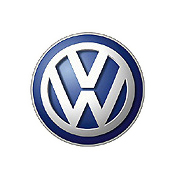Volkswagen Reaches Settlement Agreements With Private Plaintiffs and FTC
 |
◾ Program, if approved, would include provisions to recall and repair most affected vehicles.
◾ Options for older affected vehicles include buybacks or trade-in credits, or lease termination.
◾ All eligible owners and lessees of affected vehicles will receive cash payments.
HERNDON, VA - February 1, 2017: Volkswagen AG and Volkswagen Group of America, Inc. (together, Volkswagen) announced today that they have reached proposed agreements to resolve outstanding civil claims regarding approximately 78,000 affected 3.0L TDI V6 diesel engine vehicles in the United States.
Two agreements have been submitted to the Court for approval: (1) a proposed class settlement with private plaintiffs represented by a Court-appointed Plaintiffs’ Steering Committee (PSC) on behalf of a nationwide class of current and certain former owners and lessees of eligible 3.0L TDI V6 vehicles; and (2) a proposed Consent Order submitted by the U.S. Federal Trade Commission (FTC).
“With the Court-approved 2.0L TDI program well under way and now this proposed 3.0L TDI program, all of our customers with affected vehicles in the United States will have a resolution available to them. We will continue to work to earn back the trust of all our stakeholders and thank our customers and dealers for their continued patience as this process moves forward,” said Hinrich J. Woebcken, President and CEO of Volkswagen Group of America, Inc.
Proposed 3.0L TDI Settlement Program
Under the 3.0L TDI settlement program, Volkswagen has agreed, among other terms, to provide cash payments to all eligible members of the class, and take the following specific actions:
- Recall and repair, free of charge to the customer, approximately 58,000 affected 2013-2016 Model Year Volkswagen, Audi and Porsche 3.0L TDI V6 vehicles (so-called Generation 2 vehicles) to bring them into compliance with the emissions standards to which they were originally certified, if an appropriate Emissions Compliant Repair is approved by U.S. regulators.
- Buy back or offer trade-in credit of equal value for, or terminate the leases of, approximately 20,000 eligible 2009-2012 Model Year Volkswagen and Audi 3.0L TDI V6 vehicles (so-called Generation 1 vehicles) or, if approved by U.S. regulators, modify the vehicles to substantially reduce their nitrogen oxide (NOx) emissions so as to allow eligible owners and lessees to keep them.
Volkswagen has agreed to pay up to approximately $1.2 billion in benefits for the 3.0L TDI settlement program, assuming 100% participation in the program, a 100% buyback of all eligible Generation 1 vehicles and availability of an Emissions Compliant Repair for Generation 2 vehicles. Volkswagen expects to be able to bring affected Generation 2 vehicles to the same emissions standards to which the vehicles were originally certified.
Volkswagen will begin the 3.0L TDI settlement program as soon as the Court grants final approval to the settlement agreements. At the earliest, approval will occur in May 2017.
Potential claimants under the class settlement do not need to take any action at this time. Individual class members will receive extensive notification of their rights and options (including the option to “opt out” of the settlement agreement) if the Court grants preliminary approval of the proposed class settlement at a hearing scheduled to take place on February 14, 2017. More information about the proposed 3.0L TDI settlement program can be found at www.VWCourtSettlement.com.
The proposed settlement applies to all 3.0L TDI V6 diesel engine vehicles that Volkswagen, Audi, or Porsche marketed or sold in the United States for Model Years 2009 through 2016. The vehicles are divided into two generations, as follows:
Generation 1 Vehicles
| Model | Model Years | |
| Volkswagen Touareg | 2009-2012 | |
| Audi Q7 | 2009-2012 |
Generation 2 Vehicles
| Model | Model Years | |
| Volkswagen Touareg | 2013-2016 | |
| Audi Q7 | 2013-2015 | |
| Audi A6, A7, A8, A8L, Q5 | 2014-2016 | |
| Porsche Cayenne Diesel | 2013-2016 |
If Volkswagen is unable to obtain a timely approved Emissions Compliant Repair for eligible Generation 2 vehicles, it will offer to buy back or provide trade-in credit of equal value for, or terminate the leases of, eligible Generation 2 vehicles and may also seek approval by U.S. regulators to offer customers a modification to substantially reduce their NOx emissions.
The 3.0L TDI settlement program also includes a proposed Consent Decree reached with the U.S. Department of Justice (DOJ) on behalf of the Environmental Protection Agency (EPA) and a proposed agreement with the State of Califonia by and through the California Air Resources Board (CARB) and the California Attorney General on December 20, 2016. The program is subject to the approval of Judge Charles R. Breyer of the United States District Court for the Northern District of California, who presides over federal Multi-District Litigation (MDL) proceedings related to the diesel matter.
As announced previously, under its proposed Consent Decree with the DOJ, Volkswagen will contribute $225 million to the environmental remediation trust that is being established under Volkswagen’s 2.0L TDI settlement program in the United States to fully mitigate the excess, lifetime NOx emissions of the affected 3.0L TDI V6 vehicles. As part of its agreement with the State of California, Volkswagen will also pay $25 million to CARB to support the use of zero emissions vehicles (ZEVs) in the State.
By their terms, the proposed agreements announced today are not intended to apply to or affect Volkswagen’s obligations under the laws or regulations of any jurisdiction outside the United States. Regulations governing NOx emissions limits for vehicles in the United States are much stricter than those in other parts of the world and the engine variants also differ significantly. This makes the development of technical solutions in the United States more challenging than in Europe and other parts of the world.


